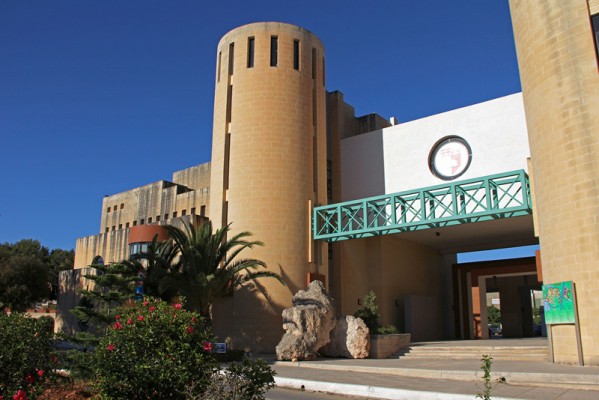With the university student council (KSU) elections coming up fast, students are buckled up for a fiery campaign between SDM, the incumbents, and Pulse. No matter how often it is downplayed, it is an open secret that each student organisation has long standing links with Malta’s two major political parties.
Ultimately, the influence that is being sought is not just over a voter demographic, but Malta’s intellectual hub. To what extent candidates are politically (and financially) linked should not be left to speculation.
In democracies, elections are one way of answering a list of questions. Criticism toward Prime Minister Joseph Muscat is (absurdly) slammed on the basis that critics do not have a democratic mandate to ‘attack’ a democratically elected leader.
In reality, elections raise many more questions than they answer. The way they are carried out comes under heavy scrutiny to ensure a proper democratic process to minimise that effect. Generally, there are strict rules to regulate campaign spending.
In the UK, regional and national rules often overlap such that loopholes can be exploited, but even relatively small breaches can lead to serious repercussions. Such a close watch is necessary due to a simple tried and tested formula: the more money pumped into a campaign, the better the chances of victory.
It is in this light that campaign spending caps are useful to regulate elections fairly. Contesting parties may get creative, provided within legal remits, as long as a spending limit is maintained. To gain power and command influence, many would happily overstep those bounds.
After the Cambridge Analytica scandal, the campaigns prior to an election ought to be more closely monitored than ever before. The consultancy firm proved that with deep enough pockets, support can be nurtured from the bottom up through invasive and manipulative means. Whether this is the case in Malta is yet to be determined, although the strong links between SCL Elections, Henley & Partners, and Cambridge Analytica set alarm bells ringing.
The Malta Independent a while ago raised serious doubts about a new ticketing system for the annual Isle of MTV concert. The newspaper drew parallels to data mining, which in this case it suggested was being done to obtain big data from a new voter base. In the University, the electoral situation is more overtly problematic.
Concern is not unwarranted considering there is no spending limit on university elections. Strictly speaking, student organisations can spend an unlimited amount to fund their campaign to take control of the KSU.
Influence over universities is desirable by autocratic regimes abroad, and it is clear that this government has a similar intention; previous attempts to increase the Prime Minister’s influence on the University Senate failed, but with the current election campaign building momentum, the Labour administration may be exploring other ways to extend its tentacles into Malta’s national university.
You would think that a student organisation has limited resources to work with; yet, students can testify to the rigour with which election campaigns are held. The university campus has been commandeered by costly campaign banners, tents, and high-end audio-visual tech. Considering all these things, plus online marketing, third party services, flyers, food, and freebies, a figure of over €200,000 might quickly add up to the campaign.
This is an estimate, so the figure could be higher or lower, but it is not unreasonable to be sceptical that political ties were not used to keep up the hundreds of euro spent daily to maintain campaign efforts.
The massive tent in the middle of the university quadrangle is rumoured to cost around €30,000. That excludes the other aforementioned costs. More transparency in the KSU elections would therefore benefit democracy.
As it stands, student organisations have ties to political parties, enjoy a financially unregulated election period campaign, and compete under a winner-takes-all, first past the post voting system.
The Dean of the Faculty of Laws called this a sham; it in fact leaves much to be desired. There is no reason why SDM and Pulse shouldn’t publish their accounts in line with every single other non-governmental organisation, especially if there are reasonable suspicions of party financing.
There is already an overbearing censorship on political discourse at university. Ultimately, KSU incumbency is sought after just as any public office is. If there is a whiff of undue influence in the elections, questions should at least be raised. After all, the University of Malta is Malta’s highest academic institution.
With almost totally unscrutinised election campaigns, only democracy stands to lose. If Malta is to take its democracy seriously, its university should be a shining example of democracy, not only in KPS’s policy dialogues, but more fundamentally in the way students are elected, and who is funding them.













